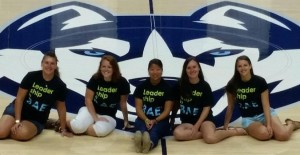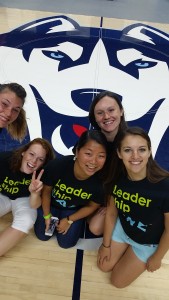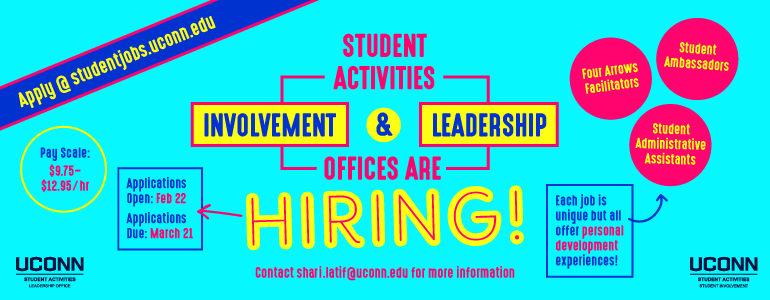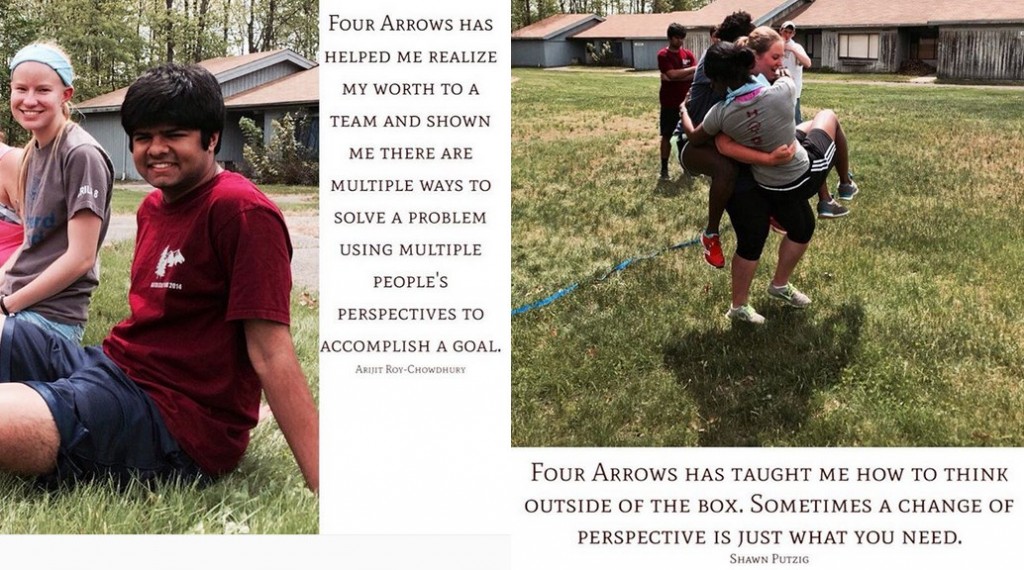A guest blog post by Ian Fignon (Legacy 16) and some of his cohortmates who all read The Road to Character by David Brooks this summer as part of the Leadership Legacy Experience.
On September 13th at 7pm in Laurel Hall 102, David Brooks will discuss the development and multifaceted nature of character as part of the Legacy Leadership Speaker Series at UConn. The American public generally knows of him as a political commentator from his OpEd column in the New York Times, where he has written on foreign wars, American culture, economic concerns such as income inequality, and Medicare. His talk will revolve around the more philosophical and moral questions posed in his book “The Road to Character”.
Immediately within the novel there is a line drawn between the two archetypes of Adam I and Adam II. Adam I is a productive, work-driven individual who rationally evaluates the surrounding world according to self-interest. The external world both encourages and directly rewards this extrinsic thinking, yet Brooks argues this way of building one’s own self fails to construct lasting and enduring personal meaning. Adam II, on the other hand, is a self-guided individual whose inward values and search for metaphysical fulfillment lead not to riches, but to a life of character. Though the world we live in directly rewards the accomplishments of Adam I, the manner and attitudes embodied by Adam II focus on personal moral improvement for its own sake. Rather than continuing an abstract and philosophical discussion of character, Brooks quickly dives into various historical figures of significance as exemplars of different moral ideals.
“Struggle”, Legacy 2016 Cohort Member Caitlin Briody
The character that continually returned to my mind is Dorothy Day. I found I could relate to her younger self- her restlessness, her adolescent pride, her interest in counterculture, and her desire to be ‘good’ without knowing exactly how. As much as I admire the reticent, self-controlled characters, I have to admit that Day’s wild side made her sympathetic.
Day’s commitment to Catholicism despite its flaws intrigued me as someone raised Catholic but who personally chose to leave due to institutional ideology I don’t support. Unlike many, Day did not merely write about improving the soul – she spent each day actively trying to live a pure life through service. Her practicality and tirelessness impressed me, and I appreciated that she approached service by living in the same conditions as those she served. She was not condescending or self-congratulating; she simply lived life according to her beliefs. This pure and genuine commitment to others is something I hope to cultivate in myself. Her care for Nanette was particularly touching, though she approached it so matter-of-factly. Additionally, despite my hesitancy toward religion, I was attracted to the way she devoted her life to serving God. Day constructed a very practical life in a very spiritual context, and found a purpose. I like that despite the suffering she wed herself to, her spirituality came from a place of thankfulness. Even with the hardships she endured, she was grateful, and that’s something I aim to be better at.
“Self Examination”, Legacy 2016 Cohort Member Ian Fignon
My favorite character is essayist and writer Samuel Johnson, born crippled and disfigured by scarring. Curiosity and intellect, combined with brutal honesty, prevented wonderment over the world’s complexities from clouding Johnson’s keen judgment. Unlike others, Johnson feverishly interrogated his own perceived decencies to understand them. He could not fix his chronic medical ailments, but, through willpower and conviction, he could mitigate and navigate them. Despite dropping out from Oxford, Johnson pushed forward. Years later he had not only written hundreds of works spanning dozens of topics, he had single-handedly compiled “A Dictionary of the English Language”. Whereas similar efforts for other languages had taken dozens of scholars even longer, Johnson’s unforgiving discipline demanded a breakneck pace that finished after nine years. Regardless, Johnson would sit in the pub and buy the everyman a pint. He opened his own doors to the downtrodden and to drunkards, and himself embodied the paradoxes he found so amusing and interesting. This strange combination of cutting intellect, harsh discipline, and compassion was what drew me to this character as my personal favorite. By facing reality head-on, unabated, Johnson forced himself to wrestle with life’s most meaningful questions. Though his search did not always glean the most universal or revealing of truths, it certainly bought Johnson some degree of peace. Only by constantly testing ourselves and by meeting our own demands to achieve more can we ever truly look back and be satisfied.
“The Summoned Self”, Legacy 2016 Cohort Member Marissa Piccolo
I would consider Frances Perkins as my favorite character discussed within Brooks’ novel. Perkins devoted herself to her chosen cause of pushing Progressive labor reform and was very aware of the unique role she had the ability to play in furthering the movement. Having felt called to use her educated, middleclass upbringing for the public good after the Triangle Shirtwaist Fire, Perkins began locally and eventually moved upwards past New York state politics. As soon as she knew what her calling was, she immediately became involved. Perkins considered her cause and values to be greater than herself, and therefore was always looking forward, and often on a much longer and greater scale than others. It was never about her personal reputation, the offered salary, or the possible connections. Eventually, she worked within FDR’s cabinet as the Secretary of Labor and was largely responsible for cornerstones of the New Deal, such as Social Security, wage and safety regulations, and public works programs. Throughout her entire life, however, Perkins was always willing to place the cause above her own pride and person and take on less public roles. Largely as a result of her years in public service, Perkins only became more committed to the various causes she became involved in. The fights she weathered toughened her, and she stayed true to her beliefs and values in the face of challenges.
Brooks’ rich commentary is able to frame historical figures in an easily accessible, yet deeply meaningful light that provides context for distinguishing between Adam I and Adam II. “The Road to Character” provides insight that is rooted in both the abstract and in reality. On September 13th, Brooks will explore various traits and virtues like shame, reticence, duty, grace, and more through lives of various people to understand personal character and individual integrity better.






